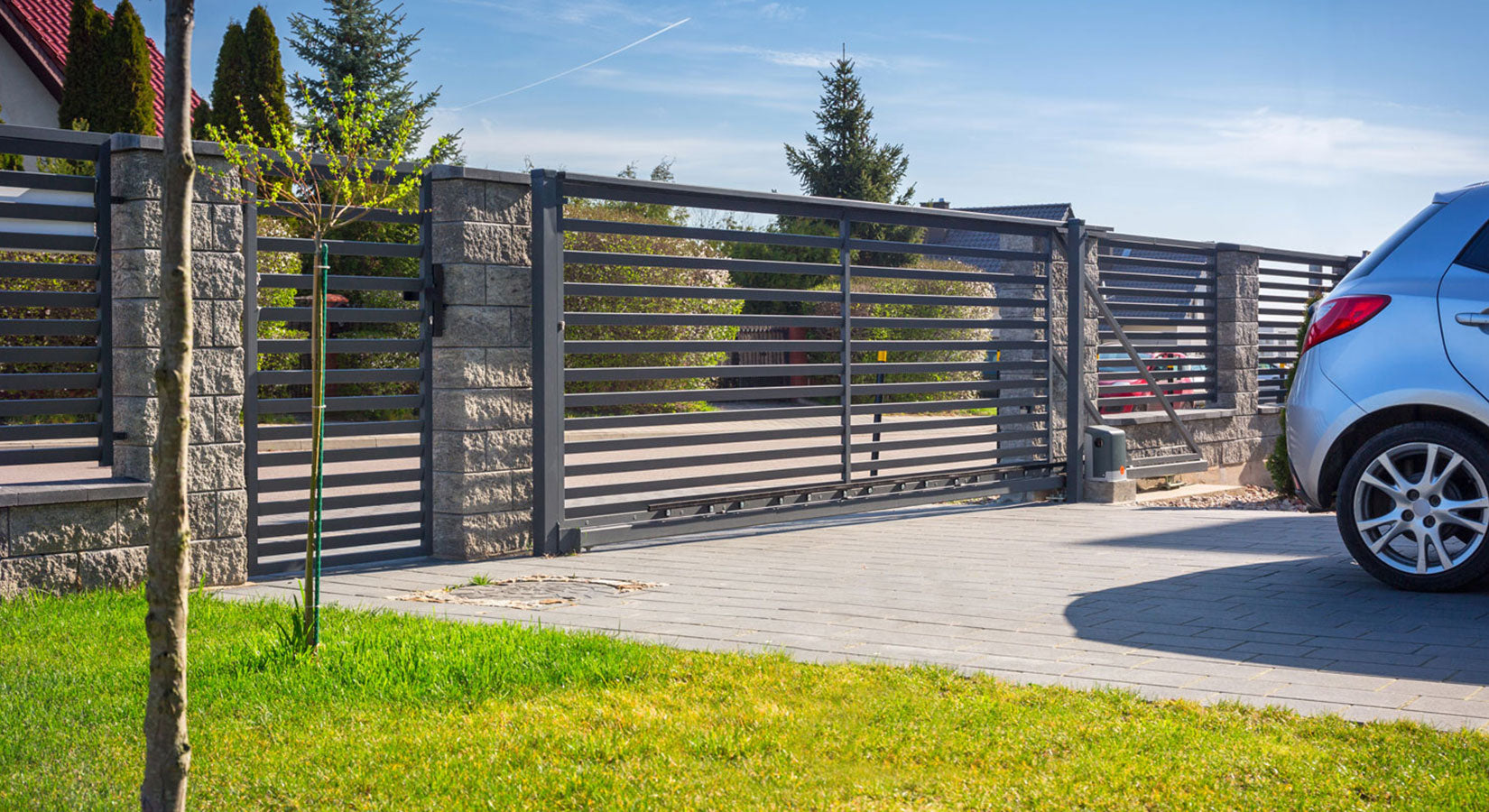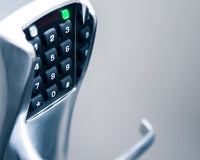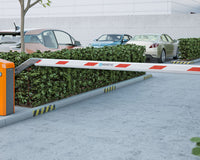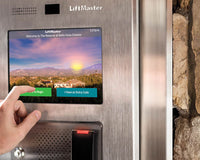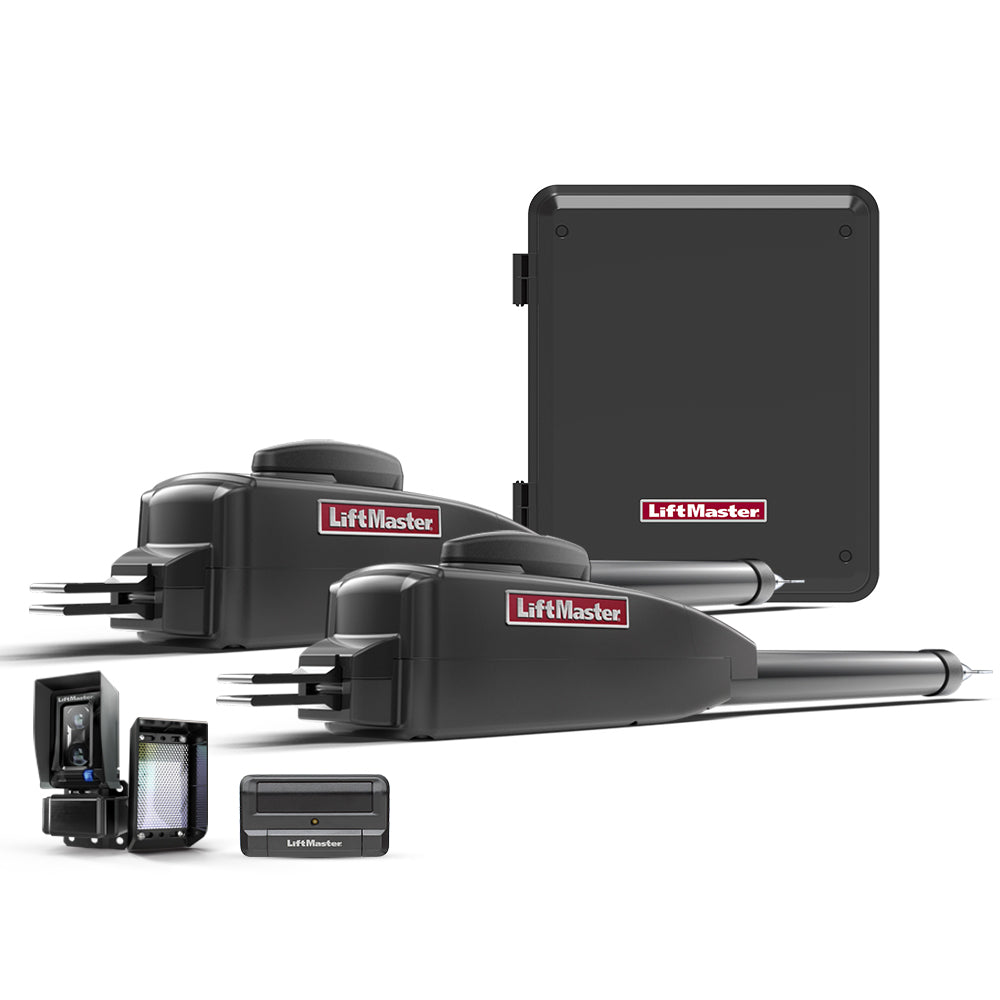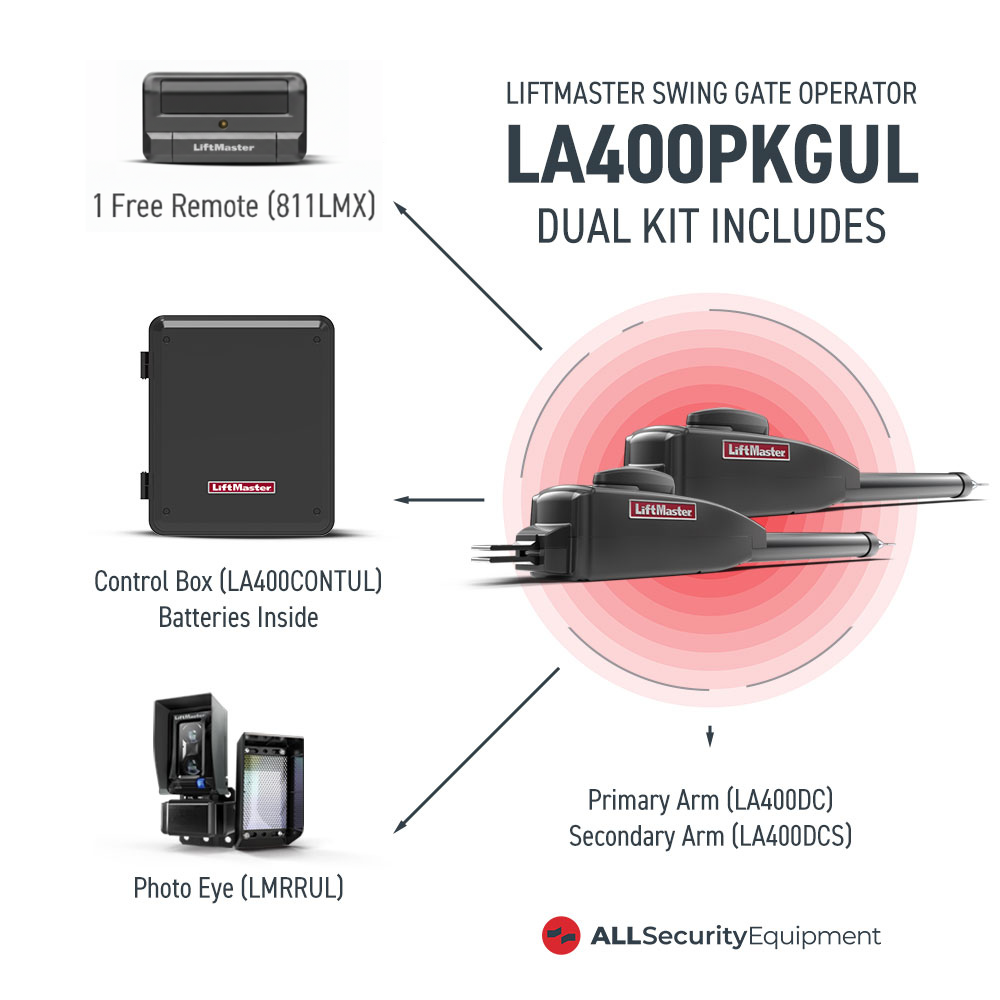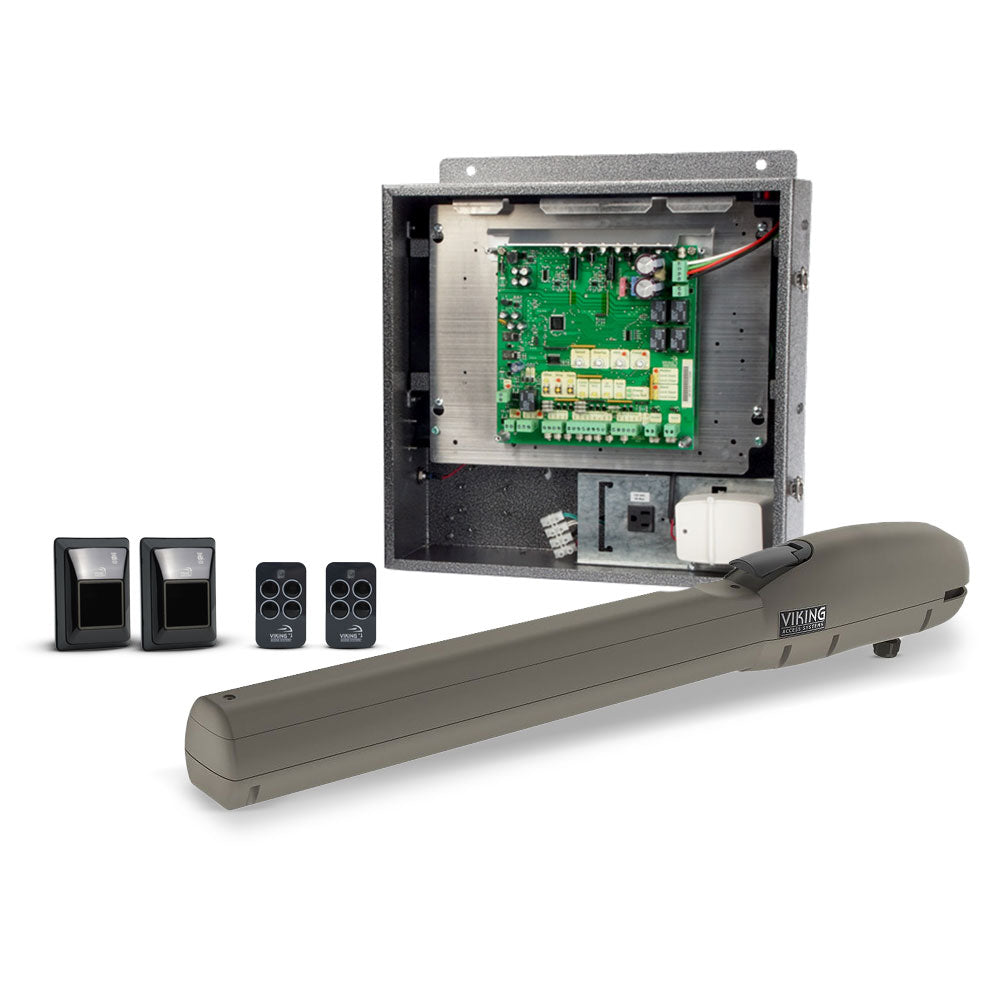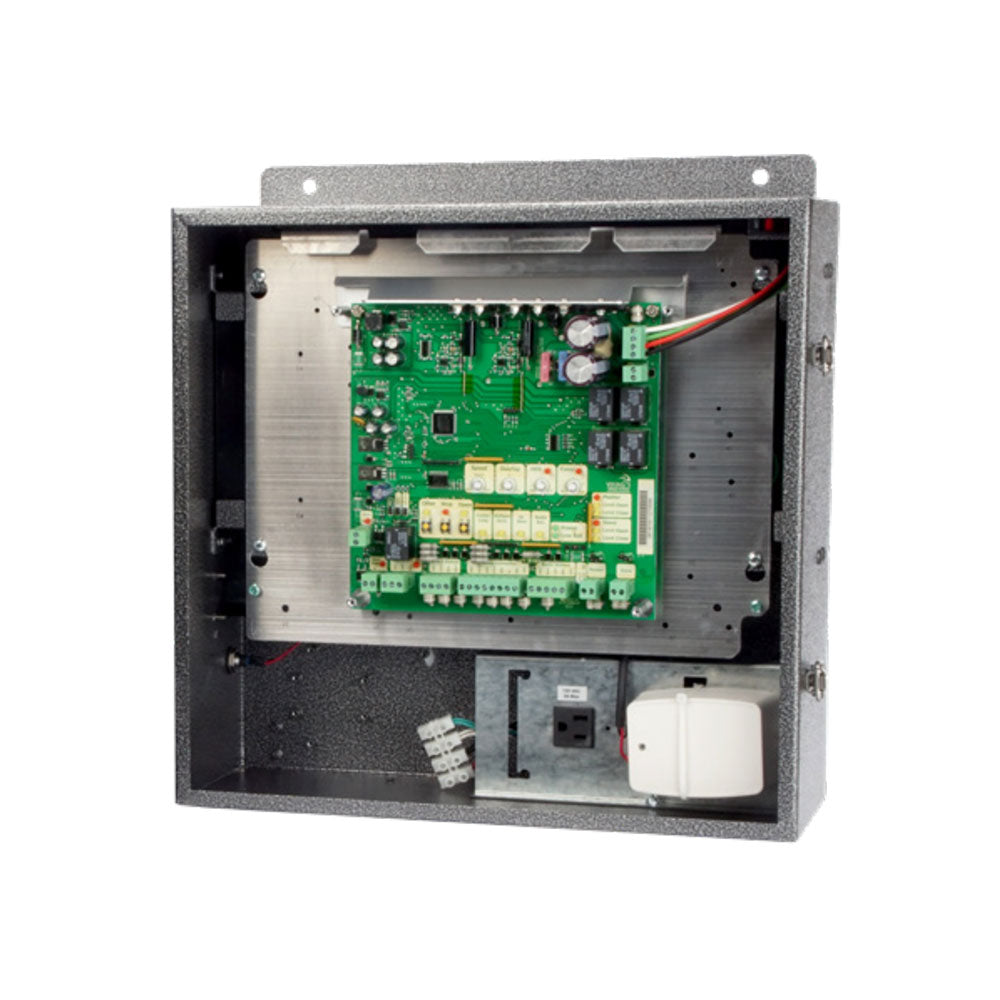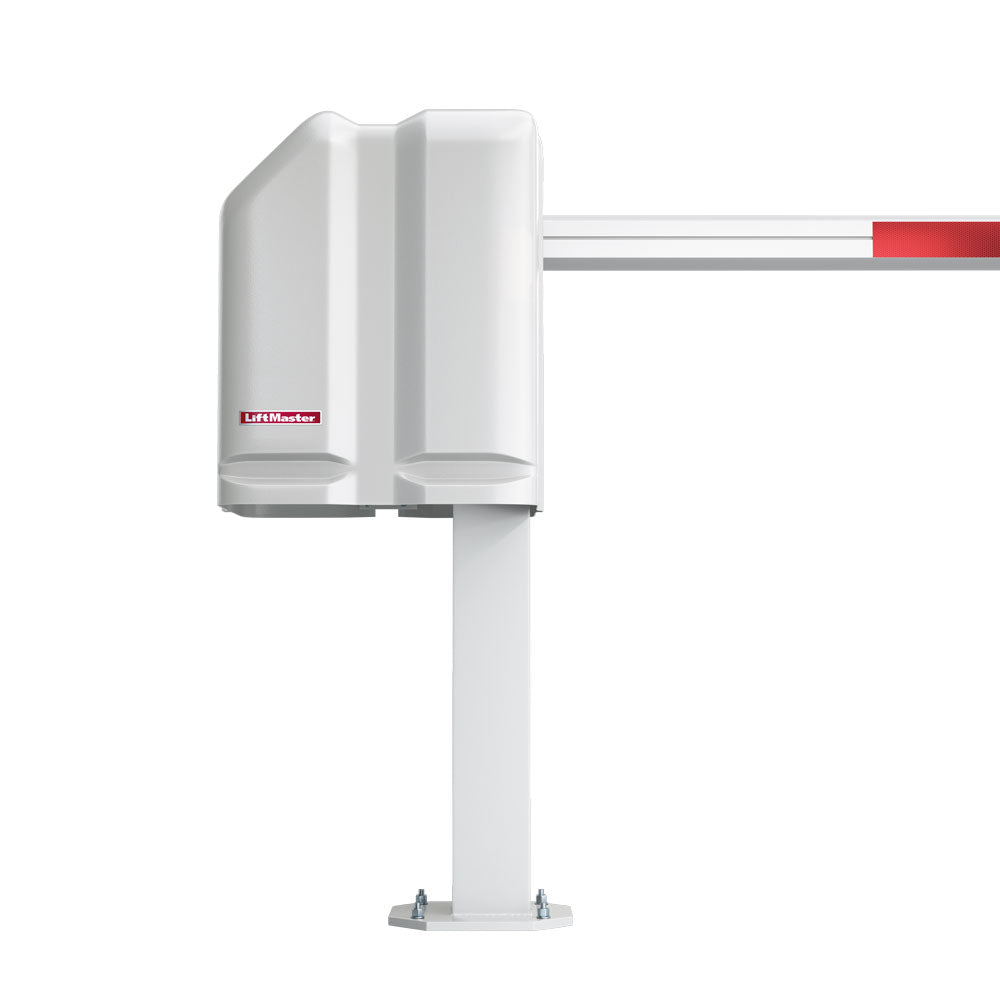When you’re driving into an area and notice the gate automatically swings open, you might assume that someone opened it via remote control. But what opened the gate is more likely a loop detector. The humble underground magnetic coil detects the metal of your vehicle, resulting in an electromagnetic impulse to the gate opener, after which you gain entry to the premises. In this guide, we’ll delve into everything you need to know about loop detectors.
How Far Does The Loop Detector Reach?
If a loop detector is part of the plan of a new organization or home, construction workers will dig a trench ranging from one to six inches in depth and install a burial loop or pre-form loop before laying the asphalt or concrete. Before pouring the asphalt, the crew will secure the loop to rebar. For those who fail to plan or are adding one after the fact, a saw-cut loop or cut-in counterpart paves the way for the embedment into current driveways or roads.
How Do Loop Detectors Work?
The loop detector connects to the main circuit board of the gate operator. A continuous length of wire (the loop) repeats at a particular frequency. The frequency increases when something big and metal rolls over the loop. After detecting this change, the open relay closes and remains that way until the vehicle rolls off it. The same applies to other areas such as intercom systems and traffic lights.
Many factors affect detection, ranging from the vehicle height to that of the loop. Usually, a loop has the uncanny ability to detect a vehicle whose height is approximately two-thirds above it. It represents the shortest leg of the loop. For instance, a loop that’s 4 feet tall can sense a large piece of metal that is at least 3-1/3 feet above it. Therefore, if you have an array of high-bed vehicles such as monster trucks coming to your premises, you’ll require a larger loop detector.
Where Do You Position The Loop Detector?
Loop detectors require ideal placement for optimal functioning. Typically, they detect the front axle of a vehicle. For scenarios whereby your business is a fast-food drive-through or your home’s gate has an intercom system, you’ll need to position your loop up to two feet ahead of the speaker post. The long axis of the loop should be at a right angle to the traffic lane. However, SUVs or other high bed vehicles may botch this required perpendicular angle for two reasons. For starters, they are tall, and secondly, the broader turning radius implies that the vehicle length may end up too far from the speaker post for ideal loop detection.
What If Your Loop Doesn’t Sense Cars Accurately?
A proper-functioning loop detector has adjustable settings. Overly low sensitivity means it won’t detect vehicles. Contrarily, if the sensitivity is too high, the driveway gate will automatically open each time it detects metal.
Loop Detectors for Security
An excellent vehicle loop detector or driveway sensor is an integral component of your automated security gate system. It signals gates to open and curbs them from closing each time a vehicle enters the premises. Furthermore, a loop detector comes in handy in activating exterior lighting when a vehicle approaches or informs a home or business owner of a vehicle’s arrival.
Best Loop Detectors
Let’s discuss a few of the best options in the market.
1. EMX Ultra II

It’s an energy-efficient, detachable, seven-pin terminal and compact vehicle loop detector that’s easy to set up. The EMX Ultra II provides the option for ASB (automatic sensitivity boost) for increased sensitivity after the first detection. The feature comes in handy in curbing dropout upon detecting high-bed vehicles.
Ultra II loop detectors are a breeze to operate and install. The ultra-meter display simplifies sensitivity selection. The ten sensitivity settings pave the way for you to fine-tune the detection level. Furthermore, four frequency selections curb crosstalk in several loop applications. EMX Ultra II has a failsafe if a loop failure occurs and a fail secure in case of a power outage. It also features loop diagnostics.
2. FAAC DSP-15

Designed to effectively handle all access-control, parking, and drive-through applications on loops of all sizes, the FAAC DSP-15 will give you the best bang for your buck. It gets the job done on any in-ground inductive loop ranging from 20 to 2,000 and can easily be altered from fail-secure to failsafe mode and vice versa in the field. Brief power outages are a non-issue and don’t affect the functionality of this loop detector. Plugging into higher voltage safeguards the FAAC DSP-15 against damage. The device has the uncanny ability to detect power failures and LEDs. Here’s a rule of thumb when it comes to calculating the height of the inductive loop. It’s two-thirds the length of the shortest side of the loop.
3. EMX D-TEK Universal Loop Detector

Managing your stock with this unit becomes a walk in the park. With one detector on your truck and another in your stockroom, you’re good to go. The EMX D-TEK Universal Loop Detector solves the issue of being unaware of the ideal voltage required for an installation or service call. To cut down the inventory costs, stock only one EMX D-TEK Universal Loop Detector. It features two modes (fail-safe and fail-secure), surge immunity, aluminum housing that is resistant to the elements and corrosion, loop diagnostics, two relays (presence, pulse, and a combination of the two), and gold-coated control contacts.
Conclusion
Loop detectors are a foolproof way of effectively operating an automatic door or gate system, including one that provides access to commercial premises and residential properties. The straightforward system can keep track of traffic flow as it detects trucks, cars, bikes, and motorcycles. These flexible vehicle detection units are user-friendly, which means the installation process is a breeze.

